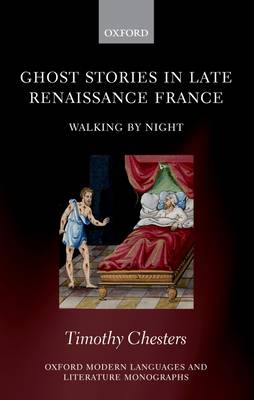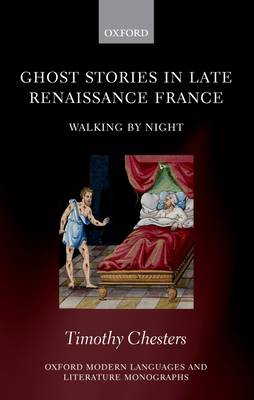
Bedankt voor het vertrouwen het afgelopen jaar! Om jou te bedanken bieden we GRATIS verzending (in België) aan op alles gedurende de hele maand januari.
- Afhalen na 1 uur in een winkel met voorraad
- In januari gratis thuislevering in België
- Ruim aanbod met 7 miljoen producten
Bedankt voor het vertrouwen het afgelopen jaar! Om jou te bedanken bieden we GRATIS verzending (in België) aan op alles gedurende de hele maand januari.
- Afhalen na 1 uur in een winkel met voorraad
- In januari gratis thuislevering in België
- Ruim aanbod met 7 miljoen producten
Zoeken
Omschrijving
Caught in the grip of savage religious war, fear of sorcery and the devil, and a deepening crisis of epistemological uncertainty, the intellectual climate of late Renaissance France (c. 1550-1610) was one of the most haunted in European history. Although existing studies of this climate have been attentive to the extensive body of writing on witchcraft and demons, they have had little to say of its ghosts. Combining techniques of literary criticism, intellectual history, and the history of the book, this study examines a large and hitherto unexplored corpus of ghost stories in late Renaissance French writing. These are shown to have arisen in a range of contexts far broader than was previously thought: whether in Protestant polemic against the doctrine of purgatory, humanist discussions of friendship, the growing ethnographic consciousness of New World ghost beliefs, or courtroom wrangles over haunted property. Chesters describes how, over the course of this period, we also begin to see emerge characteristics recognisable from modern ghost tales: the setting of the 'haunted house', the eroticised ghost, or the embodied revenant. Taking in prominent literary figures including Rabelais, Ronsard, Montaigne, d'Aubigne, as well as forgotten demonological tracts and sensationalist pamphlets, Ghost Stories in Late Renaissance France sheds new light on the beliefs, fears, and desires of a period on the threshold of modernity. It will be of interest to any scholar or student working in the field of early modern European history, literature or thought.
Specificaties
Betrokkenen
- Auteur(s):
- Uitgeverij:
Inhoud
- Aantal bladzijden:
- 298
- Taal:
- Engels
- Reeks:
Eigenschappen
- Productcode (EAN):
- 9780199599806
- Verschijningsdatum:
- 2/05/2011
- Uitvoering:
- Hardcover
- Formaat:
- Genaaid
- Afmetingen:
- 142 mm x 218 mm
- Gewicht:
- 498 g

Alleen bij Standaard Boekhandel
+ 612 punten op je klantenkaart van Standaard Boekhandel
Beoordelingen
We publiceren alleen reviews die voldoen aan de voorwaarden voor reviews. Bekijk onze voorwaarden voor reviews.









